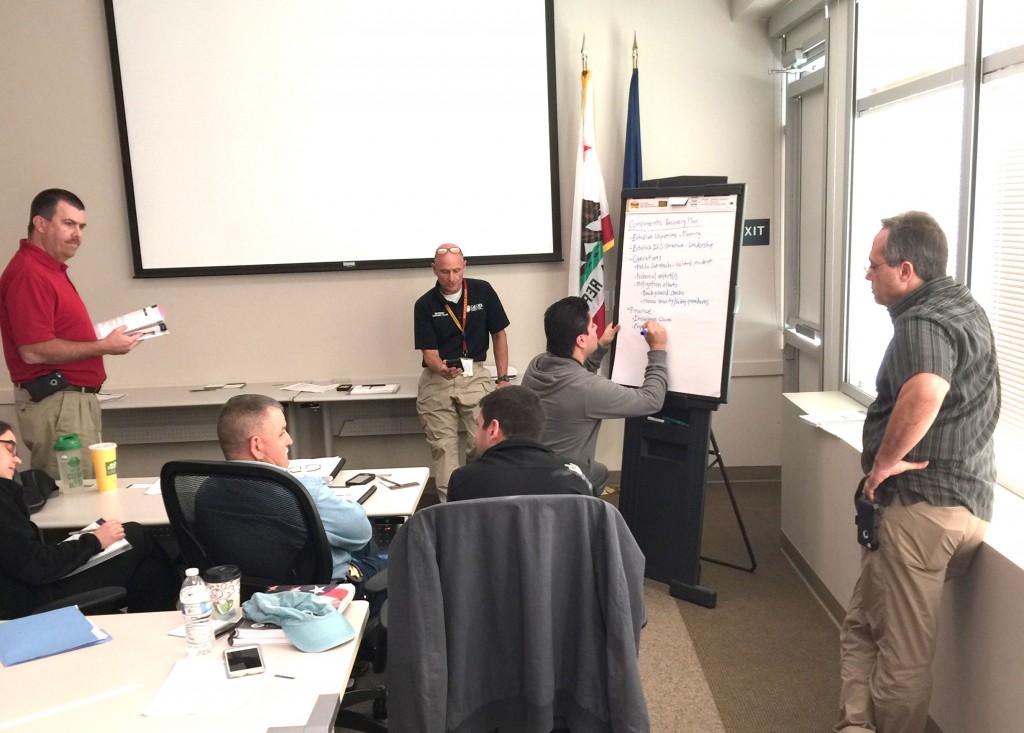Training courses phased out to make room for new instruction
December 6, 2016

First responders attending the WIFSS training course are busy planning ways to implement a recovery plan for an intentional threat to the food supply of a restaurant chain.
First responders from across the state of California from San Diego to Sutter counties attended two days of training outlining the potential effects of an agricultural emergency and the important structure for organizing the recovery from an incident of agroterrorism or food systems disaster.
David Goldenberg, a food safety and security training coordinator with the Western Institute for Food Safety and Security, taught the courses held at the California Office of Emergency Services, Mather, CA, on November 15 through16. Goldenberg’s training included active discussions and table top exercises for the Department of Homeland Security (DHS) courses on AWR 154, Principles of National Incident Management Systems (NIMS); AWR 155, Principles of Frontline Response to Agroterrorism and Food System Disasters; and AWR 156, Principles of Planning and Implementing Recovery.
The maximum turnout of 40 participants included representatives from fire and law enforcement, public works, county agricultural commissioners, and private industry security units. Lively discussion during team-building table top exercises had participants focused on a wide variety of training circumstances. The diverse group of first responders considered critical factors for success in a recovery effort applicable to hypothetical agroterrorism or food systems crises.
AWR 154, 155 and 156 courses have been offered by the Rural Domestic Preparedness Consortium (RDPC), a partner of the National Domestic Preparedness Consortium, which is a DHS/FEMA training partner under DHS/FEMA’s Homeland Security National Training Program cooperative agreement. WIFSS teaches DHS certified courses that are offered through the RDPC.
The November sessions marked the final delivery of these three courses. The courses are being phased out to make room for two new courses instructing first responders on preparation and planning for successful disaster response teams. AWR 328 – All Hazards Preparedness for Animals in Disasters will discuss unique issues to be considered and addressed when animals are involved in an emergency, such as safe animal handling, animal evacuation, and animal sheltering; and MGT 448 – All Hazards Planning for Animal, Agricultural, and Food Related Disasters applies a whole community approach to planning for disasters that impact animal, agricultural or food industries.
